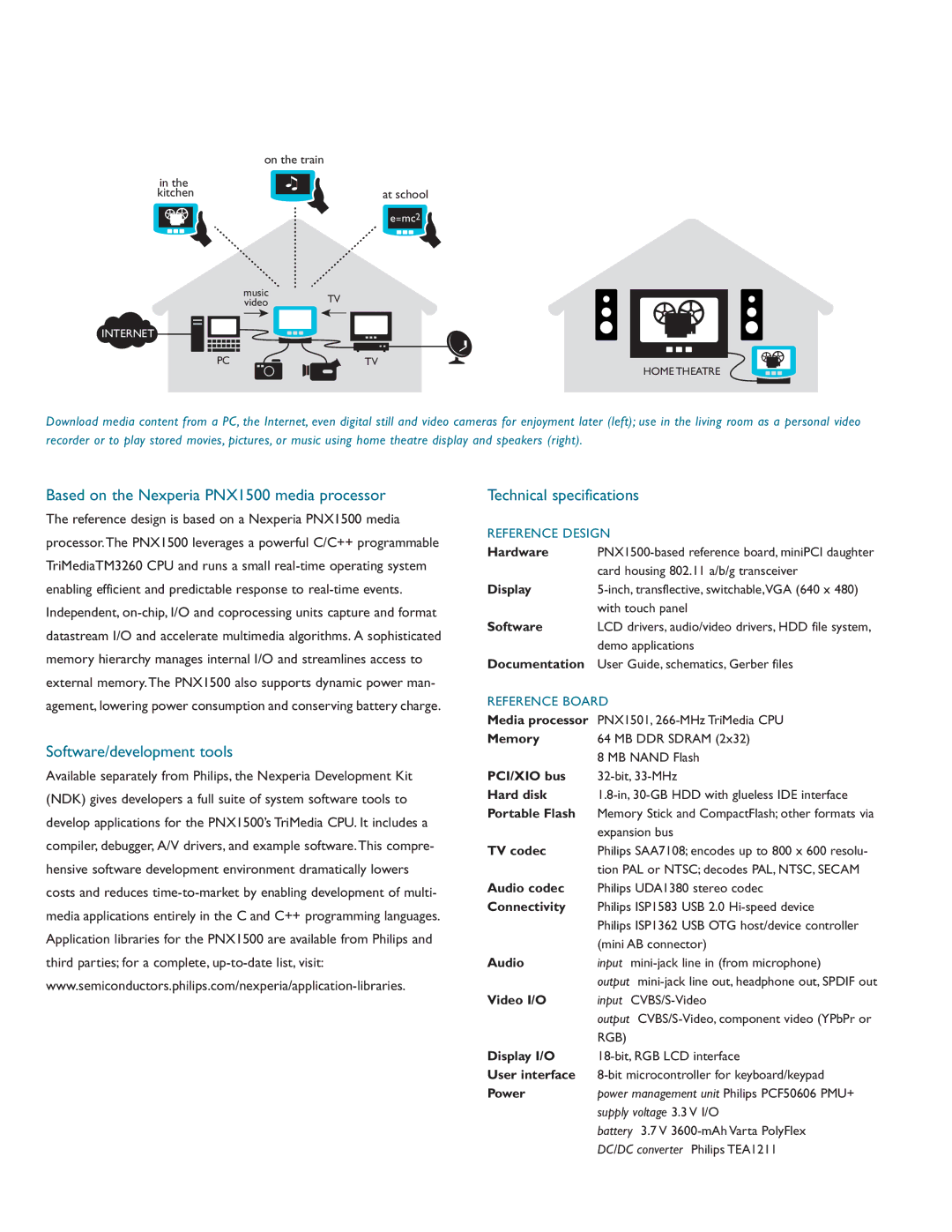
on the train
in the kitchen
at school
e=mc2
music
videoTV
INTERNET
PC | TV |
HOME THEATRE
Download media content from a PC, the Internet, even digital still and video cameras for enjoyment later (left); use in the living room as a personal video recorder or to play stored movies, pictures, or music using home theatre display and speakers (right).
Based on the Nexperia PNX1500 media processor
The reference design is based on a Nexperia PNX1500 media processor.The PNX1500 leverages a powerful C/C++ programmable TriMediaTM3260 CPU and runs a small
Software/development tools
Available separately from Philips, the Nexperia Development Kit (NDK) gives developers a full suite of system software tools to develop applications for the PNX1500’s TriMedia CPU. It includes a compiler, debugger, A/V drivers, and example software.This compre- hensive software development environment dramatically lowers costs and reduces
Technical specifications
REFERENCE DESIGN
Hardware | |
| card housing 802.11 a/b/g transceiver |
Display | |
| with touch panel |
Software | LCD drivers, audio/video drivers, HDD file system, |
| demo applications |
Documentation | User Guide, schematics, Gerber files |
REFERENCE BOARD | |
Media processor | PNX1501, |
Memory | 64 MB DDR SDRAM (2x32) |
| 8 MB NAND Flash |
PCI/XIO bus | |
Hard disk | |
Portable Flash | Memory Stick and CompactFlash; other formats via |
| expansion bus |
TV codec | Philips SAA7108; encodes up to 800 x 600 resolu- |
| tion PAL or NTSC; decodes PAL, NTSC, SECAM |
Audio codec | Philips UDA1380 stereo codec |
Connectivity | Philips ISP1583 USB 2.0 |
| Philips ISP1362 USB OTG host/device controller |
| (mini AB connector) |
Audio | input |
| output |
Video I/O | input |
| output |
| RGB) |
Display I/O | |
User interface | |
Power | power management unit Philips PCF50606 PMU+ |
| supply voltage 3.3 V I/O |
| battery 3.7 V |
| DC/DC converter Philips TEA1211 |
